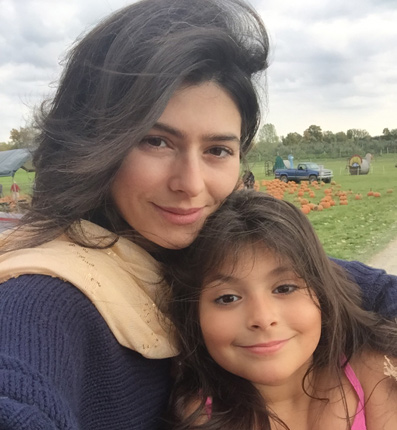
After beating Hodgkin’s lymphoma twice, one can understand Katalee Staley’s great disappointment when the disease returned a third time. Thankfully, a clinical trial available at the Karmanos Cancer Institute is giving her renewed hope for a cancer-free future.
Hodgkin’s lymphoma is a cancer of the lymphatic system, which is part of the body’s immune system. With this disease, cells in the lymphatic system can grow abnormally and compromise the body’s ability to fight infection.
Doctors first diagnosed Katalee in 2008, when she was just 21. She became cancer-free after six months of chemotherapy. When the disease returned two years later, she sought treatment at Karmanos and received care from Radhakrishnan “Rod” Ramchandren, M.D., a specialist in Hodgkin’s lymphoma and member of Karmanos’ Bone Marrow Transplant Multidisciplinary Team.
Chemotherapy and a bone marrow transplant gave Katalee a year without cancer. But Hodgkin’s proved tenacious and returned in 2011. Additional treatments kept the disease under control until 2014.
“At that point, I was really tired,” says Katalee, now 30. “I felt that this was it for me. Then, Dr. Ramchandren said, ‘Hold on—I think there’s a drug that may work differently than your other treatments.’”
Katalee entered a clinical trial involving a new drug called Opdivo®. Clinical trials are research studies that examine new cancer-fighting drugs and therapies. Opdivo®, in combination with a new treatment method called immunotherapy, has provided encouraging results. This new treatment protocol has worked so well for Katalee and other patients, it may change how doctors treat Hodgkin’s from now on.
Clinical trials are paving the way for many new and more effective cancer treatments, says Lisa Lange, ANP-BC, AOCN, director of the Clinical Trials Office at Karmanos.
“Clinical trials give patients access to state-of-the-art cancer treatments,” she says. “We have a very large program with more than 400 trials. That means we’re more likely than other area hospitals to have a trial for an unusual type of cancer. And we offer multiple trials for certain cancer types.”
Lange adds that every patient is considered for appropriate available clinical trials.
“Patients in trials receive the latest treatments, are under very close observation for safety and help further the development of cancer care,” she says. “Trials help improve survival rates for future patients.”
Katalee has been in remission for more than a year since entering the trial. Now, she can focus on her job as a dietitian and care for her six-year-old daughter.
“It’s a great feeling,” Katalee says. “At one point, I felt I was really out of options. But thanks to this new drug and to the care of Dr. Ramchandren and his team, I’m alive and hopeful that I’ll continue to have more time to raise my daughter and to experience what life is all about.”